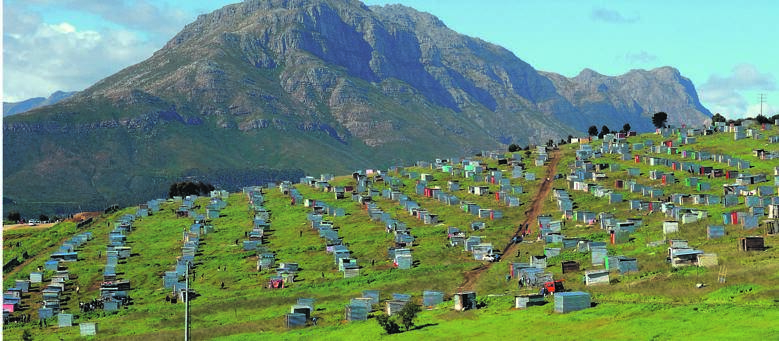
Expropriation of land without compensation gets the green light but with strict conditions to ensure it does not collapse the values of the Constitution
A presidential panel, tasked with investigating land reform, has given the go ahead for a constitutional amendment for the expropriation of land without compensation – but with strict conditions.
The report compiled by the multidisciplinary advisory team on land reform and agriculture was appointed by President Cyril Ramaphosa last year and was released on Sunday.
The panel was appointed at the height of the land debate when there were jitters about the damage such an amendment would do to property rights and investor certainty.
Headed by economist and national planning commission member Vuyo Mahlati, the panel includes experts from across the spectrum.
Two members aligned with the farming sector have distanced themselves from the report.
In its report the panel notes that even without a constitutional amendment “the state is able to expropriate for land reform purposes based on just and equitable compensation”.
It says if the intention of the proposed amendment is to “move away from mandatory compensation” then it should insert a new clause in section 25 of the Constitution which would read: “Parliament must enact legislation determining instances that warrant expropriation without compensation for purposes of land reform envisaged in section 25(8).”
But the panel warns that if the intention of an amendment is to “implement expropriation without compensation and without conditions” it would “offend” and “collapse” the underlying values of the Constitution.
The report makes wide-ranging proposals on how South Africa deals with land reform, ownership patterns and food security.
. Government consider imposing land ceilings to limit the total area of land that an individual or a company can own, but this must be varied across the types ecological zones;
. Government institute a land tax inquiry to look at a rates policy that will “disincentivise the retention of large and unproductive land holdings” and that large landholdings beyond a prescribed threshold be acquired by the state or “punitively taxed”;
. Government tread easily on current and pending legislation governing communal land tenure and traditional land governance and make sure that these do not contradict each other, not be “paternalistic” and should be guided by “Western dominant culture”.
. The Ingonyama Trust Act be repealed and the trust disbanded or governance be devolved to local level and its “rights vested in occupiers”;
. A land rights protector be appointed to stop widespread land-related corruption and to refer investigations to the National Prosecuting Authority;
. A land reform fund be set up;
. Churches, mines and companies be encouraged to “donate” land for redistribution; and
. Land reform be taken away from its current ministry and be located in the presidency where it will be easier to coordinate the programmes of different departments that are involved in matters, such as food security, urban planning, finance and water rights .
Other recommendations include a number of policy reforms to ensure that land is in the hands of those who need it most.
On Thursday the National Assembly resuscitated the work of the last Parliament when it established a multiparity ad hoc committee to introduce legislation to amend the Constitution.
The committee will now have to take the report’s recommendations into account.
The report calls on Parliament to consider the latest version of the Expropriation Bill which lists specified instances in which expropriation without compensation may take place.
According to the bill, it may be just and equitable for nil compensation to be paid when land is expropriated in the public interest.
These instances include: when land is occupied or used by a labour tenant; where land is held for speculative purposes; where land is state-owned or owned by a state-owned entity; where the owner has abandoned the land; and where the market value of the land is equivalent to or less than the present value of direct state investment or subsidy in the acquisition and beneficial capital improvement of the land.
It recommends the Expropriation Bill plus its regulations be referred to the Constitutional Court for confirmation that they are consistent with the Constitution.
The panel is scathing about the office of the valuer-general (OVG), calling for its function to be reviewed.
“The approach from the OVG has been to narrowly determine value in terms of market value alone. This defeats the very purpose for which the OVG was established and [it] has not made a positive contribution towards effecting affordable land reform,” the report reads.
“We recommend that the role and function of the OVG be reviewed to be in line with the act to ensure that the compensation determined in the event of expropriation for land reform purposes is just and equitable, and not purely market-based.”
One of the big bones of contention in the land debate has been around communal land, particularly land held by chiefs in rural areas.
The panel warns against giving title to people who live on communal land.
“Rather the panel recommends a land records bill to enable the majority of citizens, who hold property “off-register” to record and register their property – including residents of informal settlements, farm dwellers, labour tenants ...”
On foreign ownership the panel throws it’s weight behind the recommendations of a 2006 expert report which called for a land ownership audit.
In addition, the panel highlights the need to protect “key and strategic land from foreign ownership”.
With regards to the proposed tax inquiry the report says reform in this area “must be premised on the recognition that land must serve a social function that is of public benefit”.
An issue, which is likely to be resisted by elements of the commercial farming community, is the panel’s call to Ramaphosa to publicly demand a halt to farm evictions and for him to expedite mechanisms for ensuring farm dwellers’ land security.
How the president's panel suggests the issue be tackled
FINANCING LAND REFORM
A land reform fund, which would be a partnership between government and the private sector, has been suggested as a tool to help bring about the release of much-needed land.
Outside of the limited land that can be acquired through expropriation without compensation, the president’s advisory panel believes that government needs to be proactive in finding other means of making land available. And the panel says that, outside of expropriation, government needs to explore acquiring land through “open market purchases”.
. Land reform bonds, which would be issued by the Land Bank with state guarantees;
. Capital donations from South Africans as well as foreign organisations; and
. A consolidation of government’s land-related budgets and joint venture financing models.
The joint venture financing models would rely heavily on major players in the sector – including agribusiness, large commercial farmers, property developers and commercial banks – for their implementation.
The report notes a commitment by some commercial banks to “match the state’s budget for land reform in the interest of fast-tracking the progress in the form of a loan at a preferential rate over a set period”.
In emphasising the need for new financing mechanisms, the panel refers to a 2016 study that highlighted that the budget for rural development and land reform has been “consistently below 1% of the total budget [except for two years – 2006 and 2007]”.
“For redistribution referred to as ‘land reform’ in the total budget, it has generally been between 0.15% and 0.4%, reaching a peak of 0.44% of the national expenditure in 2008/09 and then declining to 0.2% in the current financial year,” the panel found.
The panel is also hoping that government can appeal to the consciences of organisations and individuals so they volunteer “land donations” through a policy that would be developed as part of the new white paper.
“This should specify the exemption from donations tax of any land donated to land reform and, once appropriate beneficiaries are identified, the state should carry the conveyancing costs of land transfer,” the report states.
“To expedite large donations from big institutional owners, we propose that the president call on churches, mining companies, financial institutions, agribusinesses and others to audit their own land holdings and identify their size, location and land use, as well as any long-term occupation on these lands.
“Following this, we call on the minister to convene, within the coming year, talks across these sectors to identify land to be donated and to open discussions with potential beneficiaries, including existing land occupiers.”
BENEFICIARY SELECTION
Farm dwellers, labour tenants and subsistence farmers have been identified as priorities in government’s plans to fast-track land reform.
The president’s advisory panel has highlighted the need for those who are most vulnerable to be given priority by way of “beneficiary selection”.
“Since the abandonment of land purchase grants and subsidies in 2011, there has been no system for rationing state funds, which opens opportunities for corruption,” the report states.
“Beneficiary selection has not been transparent and there is evidence of so-called elite capture as businesspeople or those with personal political connections acquire land ahead of farmers from communal areas or farm dwellers who have experience.”
The panel has recommended that the majority of the budget for land reform give priority to farm dwellers, labour tenants, subsistence farmers and smallholder famers who produce goods for local markets.
The remainder of the budget should then be directed towards bigger players in the agricultural sector who are able to use their own capital to leverage finance from the Land Bank and other lending institutions.
FOREIGN-OWNED LAND
The panel has also recommended that government further investigate the status of all types of land owned by foreigners in the country, while reiterating the need for strategic land to be protected and not sold to foreigners.
Rehashing the findings of a panel of experts regarding foreign land ownership in the country, the panel found that the work done previously was in line with its own recommendations to the president.
The panel of experts in 2004 had found that 3% of land, and an even higher percentage of prime land – including coastal areas and game farm areas – was owned by foreigners.
This was according to information available at the time, with the disclaimer that the actual figure could be much higher.
The panel of experts had emphasised the need for government to determine the exact amount of land owned by foreigners, and what that land was used for.
There was also a recommendation that policy be introduced that would compel the disclosure of information related to land owned by trusts and corporations – that was not available to the public – to establish exactly who owned the land.
Parliament was also tasked with presiding over the process of amending legislation that would ensure a record of the identity of land owners and a verification system, as well as the monitoring of land owners.
There were also calls for a permanent interministerial committee consisting of the departments of agriculture, land affairs, cooperative governance and traditional affairs, as well as human settlements, which would monitor trends in foreign land ownership and changes in land use.
In conclusion, the president’s panel provides a wholesale endorsement of the work of the 2004 panel, urging government to tighten up policy to regulate the sale of land to those living outside of the country.




 Publications
Publications
 Partners
Partners








